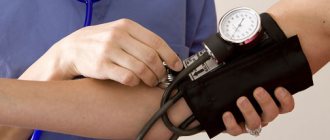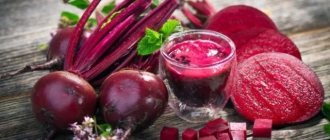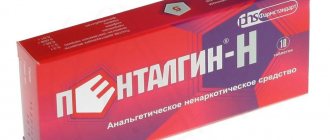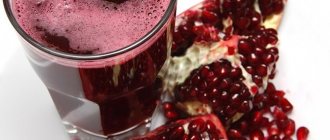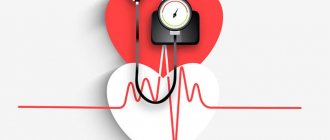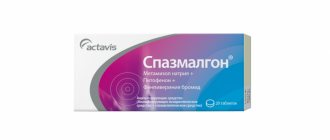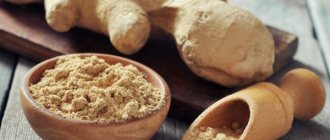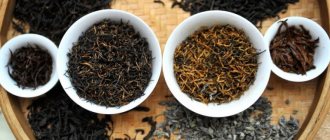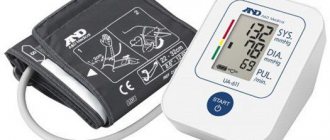Each of us has experienced an increase in blood pressure in ourselves, a family member or a close friend. It is not always possible to combat this scourge with medications, so both concepts - hypertension and propolis - can often be found together. The main advantage of bee glue is that it does not cause any reactions when mixed with various medications. It can be used at any age.
Many recipes for the treatment of hypertension contain propolis. With its help, you can strengthen the muscles of the heart, as well as blood vessels. It has a beneficial effect on the body and stabilizes blood pressure. This is a beekeeping product, so it should only be taken after consulting a doctor.
A prerequisite is compliance with the dosage. This must be taken into account in patients with diabetes or obesity.
Directions for use and doses
Externally, locally.
- Areas with superficial damage to the skin (microtraumas) are treated with a swab moistened with propolis tincture 1-3 times a day.
- For chronic purulent otitis, after thoroughly cleaning the pus, insert a tampon soaked in propolis tincture for 1-2 minutes 2-3 times a day or 1-2 drops into the ear 3-4 times a day.
- For chronic pharyngitis and tonsillitis, propolis tincture is applied to the tonsils 1-2 times a day for 8-15 days. In addition, for chronic tonsillitis, an aqueous solution of propolis tincture in a ratio of 1:20 is used for inhalation. The course of treatment is 1-2 inhalations per day for 7-10 days.
- For periodontal diseases, propolis tincture is administered in turundas into periodontal pockets for 5 minutes after deep curettage.
- In case of damage to the oral mucosa, an aqueous solution of propolis tincture (15 ml per 1/2 cup of warm water) is used for rinsing 4-5 times a day for 3-4 days.
Certified propolis oil for hypertension and other diseases
It is recommended as one of the best drugs with propolis for hypertension. Propolis oil TM Apigrin can be bought in federal health resorts: a package of 100 ml (60 grams) - from 260 to 2,300 (in specialized sanatoriums) rubles.
Of all the existing drugs, our portal and many of our fellow doctors prefer this drug. Here are just a few reasons:
- one of the few herbal medicines that is recommended and used by doctors for the treatment and prevention of various diseases
- own quality control and production of initial products
- affordable price, the closest analogues are 3 times more expensive
- certified
- Suitable for both pregnant women and women while breastfeeding, as well as children.
Compound
- Purified propolis - our own apiary
- Ghee butter (natural)
The patented technology for manufacturing the drug makes it possible to use up to 100% of all the medicinal properties of propolis, which greatly distinguishes this drug from other representatives in this segment. Propolis extract not less than 10%!!!
Dosage form of release: a substance from yellow to greenish-brown with an oily consistency, with a characteristic pronounced odor of bee glue in a plastic container and packaging made of polyvinyl chloride or polyethylene, along with instructions for use.
Application
- for diseases of the upper respiratory tract and lungs (ARVI, influenza, sore throat, acute and chronic bronchitis and pneumonia, tuberculosis, etc.)
- in endocrinology (diabetes mellitus, dysfunction of the thyroid gland and adrenal glands)
- for diseases of the cardiovascular system (coronary heart disease, angina pectoris, arterial hypertension, myocarditis, cardiac dystrophy, arrhythmias, atherosclerosis)
- for diseases of the gastrointestinal tract (gastritis, peptic ulcer of the stomach and duodenum, gastroduodenitis, colitis, enterocolitis, pancreatitis, hepatitis, cholecystocholangitis, cholelithiasis)
- for allergic conditions - to reduce the body's hyperreactivity
- to relieve intoxication
- for gynecological diseases - in the form of douches, baths and tampons soaked in solution
- with inflammation of the maxillary sinuses, rhinitis
- for ear inflammation, hearing loss
- for wounds, burns, skin diseases
In a conversation with the manufacturer: candidate of sciences, biologist O. Yu. Igoshin, we managed to find out that he has been engaged in industrial beekeeping, selection and breeding of bees for 30 years. All these years, it has been supplying its products on an exclusive basis only to federal sanatoriums. In this regard, his achievements are not very well known to the mass buyer.
Composition of the substance
The structure of propolis is similar to glue. It is based on the bark, leaves and pollen of resinous plants. The ingredients are mixed under the influence of the bees' saliva. The end result is a product that everyone knows about.
Its color and structure may vary depending on the climate of the area where the bees live. The types of insects and plant elements from which the product is made are also taken into account. Regardless of these nuances, the bee product always contains vitamin E, vanadium, calcium, organic acids, iron, essential oil, retinol and manganese.
"Magic" pills
There is a group of drugs collectively called non-steroidal anti-inflammatory drugs (NSAIDs), which we all have taken at least once in our lives, and many regularly. These are drugs that have analgesic, anti-inflammatory and/or antipyretic effects. Examples include Aspirin, Nurofen, Nice, Ketanov, Ketoprofen and others. Considering the “magical effects” of their action - relieving inflammation, pain and fever - they are prescribed by almost everyone, everyone, always. Prescribed by traumatologists, rheumatologists, therapists, ENT specialists, dentists. Plus, they can be purchased completely freely at any pharmacy. But, along with the “magical properties”, these drugs have a number of side effects that can be divided into 2 groups: cardio risks and gastro risks. Actually, gastrorisks will be discussed in this article.
Diagnostics
To diagnose such changes, gastroscopy is used, which is the “gold standard”. An interesting fact is that about 40% of patients with erosive-ulcerative changes who take these drugs for a long time (more than 6 weeks) do not feel any discomfort or unpleasant, painful sensations. Stomach problems are diagnosed only when visiting other doctors, and not a gastroenterologist. And, conversely, in 40% of patients, despite the complaints they make, nothing is found.
Recipe selection
There are many different recipes you can make at home. The ingredients used are common products that are sold in bazaars and stalls. Everyone can choose what suits them best and provides maximum benefit to the body. Please note that not everyone can use the same product.
It is strictly forbidden to treat people with low blood pressure with bee glue; its use can worsen the situation.
In a person's life, any stressful situation causes an increase in blood pressure. It should be remembered that propolis is not a panacea or a universal remedy that will completely cure the disease. It is indicated for people with arterial hypertension in parallel with the main treatment. Many patients believe that using bee glue can do without medications, but this is not true. Propolis makes the treatment regimen more effective.
Bee glue has a restorative effect, which is an additional advantage compared to the main treatment. In addition to therapy, we must not forget about a healthy lifestyle, alternating rest and physical activity. Eat only fresh and high-quality foods. Minimize bad habits if you can't completely break them at first. In this case, we can talk about normalizing blood pressure and restoring the patient’s health.
How to choose a medicine
In fact, the most important point is which medications we take. In the figure you can see the scale of aggressiveness of various drugs from the NSAID group in relation to the stomach.
The most aggressive drugs are Aspirin, Ketorolac, Piroxicam, Indomethacin. If possible, it is recommended to use selective drugs that have minimal gastrointestinal risks. Their use is always more desirable, these include Celecoxib and Rofecoxib. But despite their relative safety, they should be prescribed strictly according to indications by the attending doctor, do not forget about this.
Important patient question
Propolis supporters often wonder: does propolis increase or decrease blood pressure? The product obtained as a result of the activity of bees is classified as an antihypertensive drug, therefore the use of hypertensive drugs is allowed. It is used as an adjunct to the main treatment, which should not be interrupted when starting to take propolis. Despite its rich composition and natural origin, it cannot replace medications prescribed by a doctor.
Before you start treating hypertension with propolis, you should consult a medical specialist. Treatment is prescribed to the patient taking into account his condition, stage of the disease and characteristics of the course. The patient's age also plays an important role. Taking into account the above data, a recipe is selected.
Why is propolis recommended for hypertension?
I'll start with what is the main source of pressure stabilization - nitric oxide, which is very important for heart health. The lining of blood vessels uses nitric oxide to relax surrounding smooth muscle, resulting in vasodilation (relaxation and widening of the blood vessels) and improved blood flow. Decreased nitric oxide bioavailability plays a significant role in the development of high blood pressure (hypertension). Without this connection, you may have a heart attack or stroke. There is an enzyme called Tyrosine hydroxylase that limits the production of nitric oxide in the body.
Based on recent research, the enzyme tyrosine hydroxylase may help stabilize blood pressure, i.e. lower or raise it. Experiments were carried out on a variety of rats that were fed a diet containing nitro-L-arginine methyl ester for 15 days, which caused high blood pressure in the rats. Then, the rats were given bee glue purified from all impurities in micro doses. As a result, scientists found that bee glue reduced the activity of the enzyme tyrosine hydroxylase, which gave them reason to declare with full confidence: Propolis stabilizes high blood pressure for hypertension. Unfortunately, experiments with reduced pressure have not yet been carried out. But from experience and reviews we can conclude: propolis tinctures stabilize it.
How it works?
How do these drugs work in our stomachs? Everything is very simple, the negative impact is realized due to the imbalance of defensive and aggressive forces. We have a number of defense mechanisms in our stomach that allow us to withstand the onslaught of aggressors. Among the latest:
- An acid whose pH balance is close to that of battery acid
- Bile and pancreatic juice, which can be thrown into the stomach.
- A number of medications.
- Alcohol and nicotine.
- Irritating food components (spices, spicy foods, etc.)
- Helicobacter pylori infection and so on.
The stomach is protected due to a thick layer of mucus and bicarbonates that neutralize acid, adequate blood supply, and the ability to regenerate very quickly. When we use NSAID drugs, the balance of forces changes towards aggressive mechanisms and damage occurs to the mucous and submucosal layer of the stomach and duodenum.
NSAID gastropathy
In the scientific literature, this problem is called “NSAID gastropathy.” The term was first proposed in 1986 to distinguish specific damage to the gastric mucosa that occurs with long-term use of NSAIDs from classic peptic ulcer disease.
The difference between NSAID gastropathy and peptic ulcer disease can also be traced by the affected area. Most often, ulcers can be seen in the stomach, and not in the duodenum. Plus, the changes are more common in older people than in younger people.
Precautionary measures
Propolis for measuring blood pressure should be used after consultation with a medical specialist. The effect of the drug on the body should be tested using the lowest dose. The first party is held before bed in the evening. If by morning a person has no unpleasant symptoms or allergic reactions, the dose is gradually increased.
Within a week, increase the amount of propolis you drink to the level recommended by your doctor. Once half the course of treatment has been completed, the specialist gradually reduces the dose. During a long course of therapy, do not forget to take breaks to avoid overdose symptoms. Detailed recommendations for use can be obtained from your doctor, depending on the condition of the body.
Contraindications for use
Propolis for measuring blood pressure should not be taken daily for 4 weeks. Since it is a result of beekeeping, it suppresses the human immune system. Therefore, it is rightfully included in the list of remedies for symptomatic use. The main list of contraindications for use:
- Propolis for hypertension is prohibited as a remedy for dermatitis, eczema and other skin diseases;
- A person should refuse the product if there is intolerance to its individual ingredients;
- 2% of the inhabitants of our planet cannot take propolis due to allergic reactions.
This product has another “folk” name - bee glue. The category of people who cannot take it are people with pancreatitis and kidney stones. Propolis tincture is not recommended for use internally in its pure form, as it is quickly absorbed into the blood. The natural product is diluted with milk or water.
If the patient ignores the contraindications and does not refuse propolis, he develops itching and burning of the skin. Over time, the skin develops a rash and the body temperature rises. If a person does not fully know his body, precautions must be taken. Otherwise, you may need to call an ambulance.
Causes of hypertension
Hypertension is a persistent increase in blood pressure from 140/90 mm Hg. Art. and higher. Essential hypertension (hypertension) accounts for 90-95% of cases of hypertension. In other cases, secondary, symptomatic arterial hypertension is diagnosed: renal (nephrogenic) - 3-4%, endocrine - 0.1-0.3%, hemodynamic, neurological, stress, caused by the intake of certain substances (iatrogenic) and hypertension in pregnant women. Among iatrogenic hypertension, those caused by taking dietary supplements and medications stand out. Women taking hormonal contraceptives are more likely to develop hypertension (this is especially noticeable in obese women, women who smoke, and older women). Arterial hypertension is one of the most common diseases of the cardiovascular system. It has been established that 20-30% of the adult population suffer from arterial hypertension. The prevalence of the disease increases with age and reaches 50-65% in people over 65 years of age. The disease develops as a result of overstrain of mental activity under the influence of psycho-emotional factors that cause disruption of cortical and subcortical regulation. The main factors provoking the onset of the disease are age, sedentary lifestyle, dietary salt intake, alcohol abuse, hypocalcium diet, smoking, diabetes mellitus, obesity, and heredity.
Myths that we encounter in daily practice
Myth 1. Using NSAID drugs in the form of suppositories is less aggressive for the stomach than taking pills
This is 100% a myth. The pathogenic, destructive effect of the drug is realized through the blood, delivering it through the vessels to the stomach.
Myth 2. Medicines from the group of antacids - Rennie, Maalox, Phosphalugel and H2-blockers (Ranitidine and Famotidine) can be used as “gastroprotectors”
In this case they are not effective.
Myth 3. You can't take proton pump inhibitors regularly
The fact is that if an elderly person has been prescribed an anti-inflammatory drug for life, it is absolutely pointless to prescribe gastroprotection for a month. In such cases, medications should be taken strictly in parallel.
Myth 4. Food products (jelly, etc.) can act as “gastroprotectors”
We will leave this myth as absolutely fantastic without comment.

